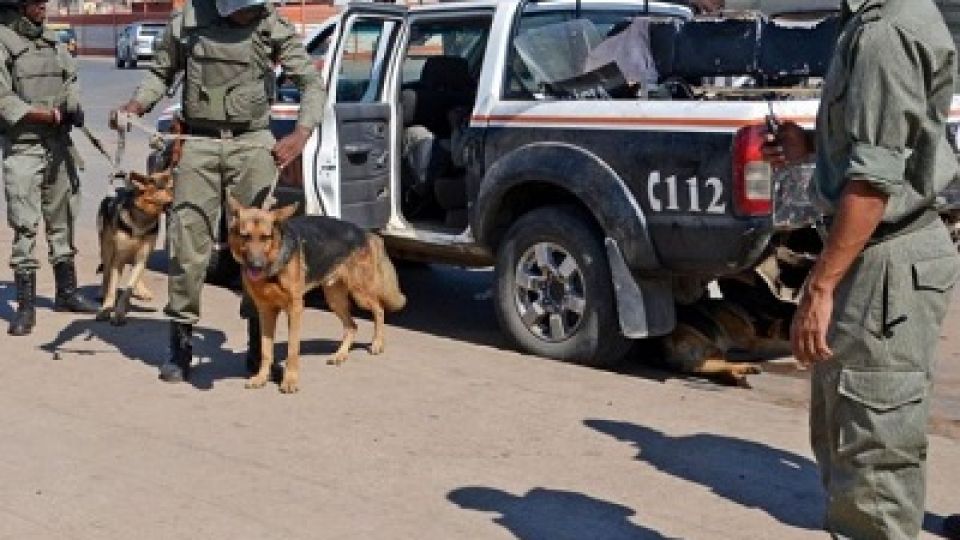from ARMANDO DOMINGOS in Maputo, Mozambique
Mozambique Bureau
MAPUTO, (CAJ News) – THE latest disappearance of a journalist, again at the hands of the uniformed forces, is an alarming dimension to the rapidly-growing Islamist insurgency in northern Mozambique.
With previous incidents of journalists never having been seen again following their arrest fresh in the memory of their families and the media fraternity, there are fears for the life of Arlindo Chissale.
The last he was heard from was October 29 when police took him into custody while he was working in the mining town of Balama.
There, the Ansar al-Sunna, a native extremist faction with tenuous international connections, has wreaked havoc in recent weeks.
At the time of the arrest of Chissale, a freelancer and editor of Pinnacle News, attacks by the rebel group led to the closure of at least two mining operations and forced hundreds of people to flee their homes.
Homes were set on fire.
This was the latest episode to the insurgency in the volatile Cabo Delgado province where the group also known as the Al-Shabaab locally, started its reign of terror this time of the year in 2017.
The military and law and enforcers have turned the area into a no-go zone for media and civil society organisations.
However, the media, committed to providing information to the public on a matter of national interest, have borne the brunt of the heavy-handedness by the uniformed forces.
Chissale has not been seen since his arrest. He has been held incommunicado, without access to lawyers or visits by family.
Zenaida Machado, Human Rights Watch (HRW) senior researcher for Mozambique, noted Chissale’s forced disappearance follows many other documented cases in which Mozambican security forces harassed, threatened and arbitrarily detained journalists covering fighting between government forces and “Mashababos”, as the terror group is colloquially known.
She explained that under international law, the arrest or detention of a person by state officials or their agents followed by a refusal to acknowledge the deprivation of liberty, or to reveal the person’s fate or whereabouts, is an enforced disappearance.
“People who have been forcibly disappeared are outside the protection of the law and are often at risk of torture and extrajudicial execution,” Machado said.
The last journalist known to have disappeared in Cabo Delgado was Ibrahimo Mbaruco, in April 2020.
He went missing after meeting a group of soldiers in Palma town and has not been heard from since.
The journalist had managed to text colleagues via short messages (SMS) that he was “surrounded by soldiers.”
The government of President Filipe Nyusi has not publicly disclosed the status of the investigations, if any, into his disappearance.
Chissale’s and Mbaruco’s ordeals add to a list of scary encounters journalists have endured at the hands of state security.
In 2019, radio journalist, Amade Abubacar, was arrested while interviewing people fleeing attacks in Pemba, the provincial capital
The military detained him for over three months at Mieze prison where he was denied food and denied visits by family and lawyers.
In 2020, police officers detained Hizidine Acha, a journalist for SOICO, the largest Mozambican private media group, for two hours and forced him to delete images on his phone and camera.
The images allegedly showed the officers beating up people suspected of links with the Islamist insurgents.
State security forces have been implicated in grave human rights violations during counter-terrorism operations in the gas-rich Cabo Delgado.
Violations include arbitrary arrests, abductions, torture of detainees, excessive force against unarmed civilians, intimidation and extrajudicial executions.
It could still get worse for journalists covering the insurgency in Mozambique.
That is if president Nyusi signs amendments to the country’s anti-terror legislation into law.
The amendment bill was sent to president Nyusi for assent in June after parliament passed it in May.
It seeks to amend Mozambique’s 2018 anti-terror law, including clause that would penalise anyone who “publicly reproduces false statements relating to terrorist acts” with a prison term of between two and eight years.
“Reproducing statements is, after all, one of the hallmarks of journalism,” said the Mozambique branch of the Media Institute of Southern Africa (MISA) stated.
MISA-Mozambique has noted that the government had denied terrorist acts in Cabo Delgado for months after the first reports.
Journalists were at the time accused of “spreading lies.”
“So the government can very well use this to silence coverage altogether,” said an official.
The government has argued that the amendments were necessary in order to strengthen the legal framework for the fight against terrorism amid the calamity in Cabo Delgado.
“Nyusi (president) must not sign the anti-terror amendment bill into law, but should instead return it to the National Assembly to correct the defects and ensure that reporting on the insurgency in Cabo Delgado is not criminalized or censored,” said Angela Quintal, Africa programme coordinator for the Committee to Protect Journalists.
Emília Moiane, director of the Mozambican government’s information office, is quoted as denying the proposed law would violate the right to press freedom, as “one of the principles of journalism was to publish only the truth.”
“We believe journalists follow this principle,” Mbone is quoted.
“Terrorism is not a subject to talk about without certainty,” the official added.
It has not been revealed when Nyusi would sign the bill into law.
More than 4 000 people are estimated to have been killed while 800 000 others were displaced during the insurgency in a country whose religious demographics is put at 60 percent Christian and 19 percent Muslim.
– CAJ News

